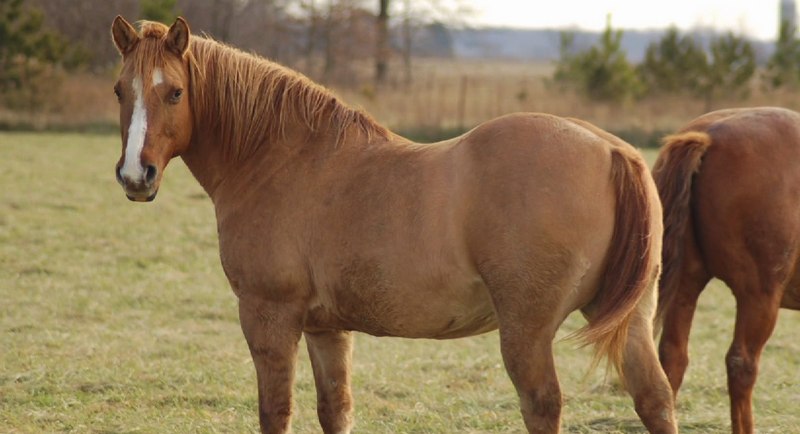Does your horse remain overweight no matter what you do? Or does he maintain his optimal weight even with subpar horse feeds? If so, then you have what’s called an “easy keeper.” Easy keepers are far less taxing on your budget, but they do present a unique challenge to their owners who must meet their horse’s nutritional requirements while avoiding obesity.
Heat stress and the decreased performance that accompanies it is probably the biggest issue when horses become overweight. Your horse’s ability to cool himself rapidly is affected by excess fat layers acting as insulation. This can lead to heavy sweating and a decline in physical performance.
Overweight horses with excess body fat can also have their oxygen intake reduced, leading to an increased need for oxygen. Fat horses are also prone to joint issues from carrying extra weight. They are also at risk for developing laminitis, which is thought to be caused by obesity and insulin resistance in horses.

Fatty tumors and lipomas are more often seen in fat horses, as well. If a lipoma becomes entangled with a horse’s intestines, this can lead to strangulation colic, an extremely serious condition which requires surgical correction.
Any time a horse expends energy in a manner that’s greater than the amount of energy taken in, weight loss will occur. While there are two ways to accomplish this goal, it’s best if you combine them for optimum results. Quite simply, you can attain proper horse nutrition by increasing the amount of exercise that your horse performs or you can reduce the amount of feed that he eats.
If your horse is healthy, then you should exercise him regularly. This is especially important for easy keepers and horses with a small turnout space. If you want your horse to lose weight, you will want to exercise him more frequently than normal.
For diet programs, you will start by determining your horse’s ideal weight and then feed him good quality grass hay at 1-1.5% of his target weight. Make sure that your horse has water and a salt block available at all times. You may want to introduce an equine supplement at this time, if your veterinarian approves. Once your horse has reached his ideal weight, increase the amount of hay that you feed him in increasing amounts until he’s no longer losing weight.
It’s very important to limit grazing during the spring and early summer. This is the time when pasture grows the fastest, and can lead to weight gain. If you’re unable to limit your horse’s grazing then a grazing muzzle will help reduce the amount of forage that your horse has access to. Once he’s back in his stall you can remove the muzzle.
Eliminate any supplements with a lot of calories from your horse’s diet. Flaxseed, rice bran and corn oil all have a high fat content, which translates to a lot of calories. If you want to reduce the weight, you need to limit the calories when feeding horses.

Most people who want to provide their horse with the right amount of vitamins and minerals will select a feed that’s concentrated or grain-based. These should be fed to your horse at the rate of about ½% of body weight. So if your horse weighs 1000 pounds, he will require about 5 pounds daily. Easy keepers, however, will require less because of their need for fewer calories. Beet pulp is a great product that provides needed nourishment without a lot of calories.
When choosing an exercise program for your horse, it’s best to go with a low intensity plan for long durations. This should not only burn off calories, but result in increased metabolic rate, reduction of mineral losses and will also control appetite.
Horses in the wild graze almost continuously because they have a limited stomach capacity. This protects the horse’s stomach by keeping saliva and plant matter in it at all times. A horse that takes infrequent, large meals may develop a gastric ulcer because of the lack of food and saliva. Ideally, a horse will receive 3-4 feedings each day. Keeping the stomach full of plant material and producing sufficient levels of saliva will prevent ulcers from occurring.



